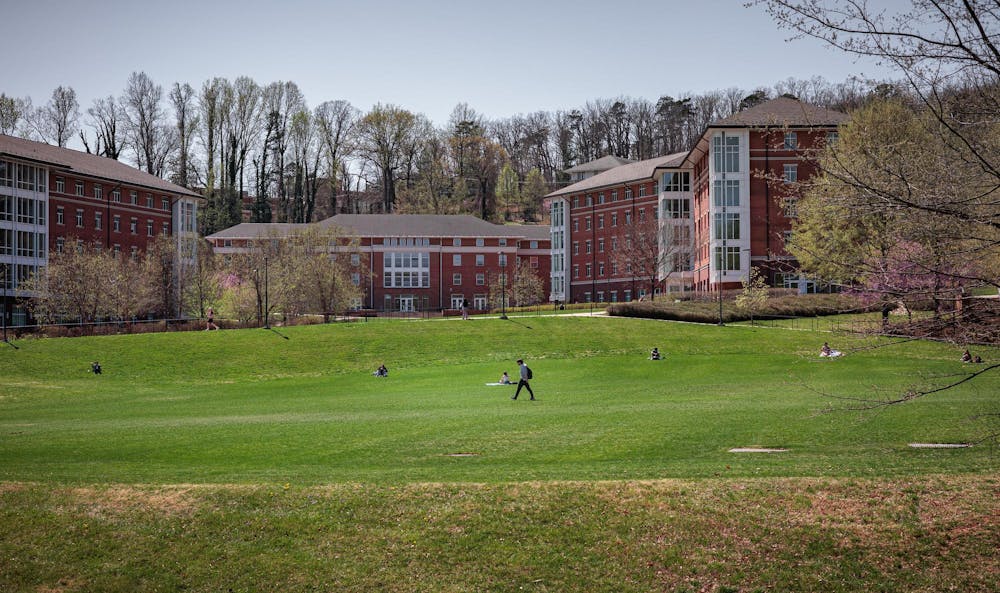Housing and Residence Life at the University is defined by many evolving paradoxes. Thinking about on-Grounds dorms conjures up images of mold and floods, just as quickly as it exemplifies shiny new developments in Gaston-Ramazani and the Ivy Corridor. Similarly, the same organization that uniquely grants resident advisors self-governance is also the one which repeatedly has disempowered those very leaders. These paradoxes seem to be deeply ingrained in the culture surrounding HRL’s administrative decisions. And as HRL continues to revise long-standing systems under the guise of progress, these paradoxes increasingly reveal a pattern of undermining grassroots student leadership.
HRL is a capacious organization composed of many different stakeholders. The ones with whom students interact the most frequently — and who are also most disempowered by recent administrative decisions — are the resident staff. Within this group, resident advisors are supervised by senior residents who oversee the entire building, and work with RAs to establish a community within their respective residence halls. Each year, RAs and SRs move residence halls through a system designed by HRL. In the past two years, this system has been reformed in ways which concerningly disempower grassroots leadership like SRs.
In the past, SRs classically selected their RA staff based on forms detailing candidates’ experiences, preferences and housing considerations. A snake draft allowed SRs to select RAs based on these characteristics, oftentimes resulting in residence halls which were cohesive in programming ambitions, mental healthcare resources or other specific focuses that SRs looked for. However, this system changed after concerns from administrators regarding that staffs were not diverse in experience or skillsets — in 2024, HRL randomly preassigned 25 percent of returning RAs to various dorms, completely disempowering them of any choice.
Recently, HRL has once again changed the housing assignment process for residence staff, a necessary change after last year’s debacle and one which illustrates the challenging landscape of balancing residential stakeholders. However, while this decision productively reflects internal criticisms and prioritizes returning RAs, it has once again delegitimized the power of senior residents for another year to come.
Under the new system, housing selection is organized by seniority — SRs choose first, followed by fourth-year RAs, returning RAs and then new RAs, with each group assigned random 15-minute time slots. HRL promoted transparency within this housing assignment cycle by sending out blurbs on each SR’s association and leadership style to the entire Residence Staff, allowing RAs to understand more about which student leaders they may want to work with. This approach clearly shifts the preference of selection towards RAs, backing away from the uncertainty of preassignment to give RAs a confident choice in what association they would like to join. However, this system continues to overlook the ability of SRs to effectively build their teams.
SRs may manage RAs and residence halls, but have become increasingly victim to changes that have devolved SRs autonomy over their staffs. The new housing policy only deepens this growing disillusionment, which is a problem in itself as SRs have been omitted from consideration when it comes to these housing changes. In trying to level the playing field, HRL has instead sidelined SRs further, stripping them of the ability to shape their staff and leaving them to lead teams they had no hand in assembling.
This most recent decision fits into a larger trend. At the forefront of the selection and assignment processes for these advisors is a commitment to the University’s tradition of student self-governance in HRL’s selection of SRs as well as the selection of student co-chairs and vice chairs who work to develop the vision for the residence life program. While HRL still claims to emphasize student self-governance, the constant change of selection processes has revealed a gaping hole in HRL’s system — the failure to consider Resident Staff, namely SRs, as an integral stakeholder while its system falsely advertises itself as a proponent of student self-governance.
In many ways, housing policies put residents at the forefront of their interests, a fair commitment. That is the same reason that RAs do not live in luxury apartments or are granted the highest meal plan — they are there in service of residents. However, that expectation must be met on the other side of the aisle. It is the responsibility of HRL to balance necessary policies to ensure the well-being and safety of residents while also maintaining a commitment to staff consideration and autonomy. While the recipients of the system, the residents, may benefit, SRs, have become victims of a sentiment of disenfranchisement inherent to repeated policy changes which minimize their autonomy.
Efforts to improve housing processes are necessary and often beneficial. However, in this case, when there is a consistent pattern of a lack of prioritization of SRs, it reveals a fundamental shortcoming within HRL’s operational model. This change, coupled with the lack of clear communication and support for affected residents, undermines the principles of student leadership and self-governance that the University espouses.
The Cavalier Daily Editorial Board is composed of the Executive Editor, the Editor-in-Chief, the two Opinion Editors, a Senior Associate and an Opinion Columnist. The board can be reached at eb@cavalierdaily.com.







